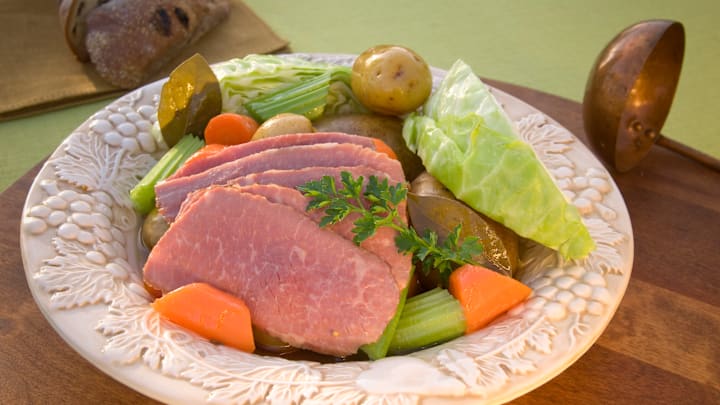Meat is an integral part of many St. Patrick’s Day menus. In the U.S., it’s often corned beef (with cabbage, not corn), a tradition that started with 19th-century Irish immigrants. Back in Ireland, pork is often still the animal protein of choice come March 17.
This year, however, the holiday falls on a Friday during Lent—which poses a bit of a conundrum for practicing Catholics, who abstain from eating meat on those days. As St. Patrick’s Day is technically a Catholic holiday (it’s the feast day of St. Patrick), it seems like church officials might make an exception on the meat moratorium so observers can duly celebrate the saint. As Food & Wine reports, a lot of them have.
Basically, it’s up to each bishop to decide whether their diocese can eat meat on St. Patrick’s Day this year. As of March 10, according to the National Catholic Register, all but 14 of 176 bishops in the U.S. had announced their plans, and 125 of them—about 70 percent—gave their congregations the go-ahead to chow down on whatever meat they want this Friday. Thirty-four of those dispensations stipulate that people who take advantage of the exemption should make up for it in some way—like forgoing meat on a different day, going to mass on the holiday itself, or praying the rosary. But for members of the other 91 dioceses, the sanctions are completely free of caveats.
As the Register pointed out, “Even some of the “no”s come with back doors.” Some bishops, for example, have specified that while their diocese as a whole can’t have meat, it is permitted in parishes named after St. Patrick. Others have authorized pastors to make exceptions for any individuals who request them.
It’s not unprecedented for St. Paddy’s Day to fall on a Lenten Friday. On average, it occurs every seven years or so: The last time was 2017, and it’ll happen again in 2028.
[h/t Food & Wine]
